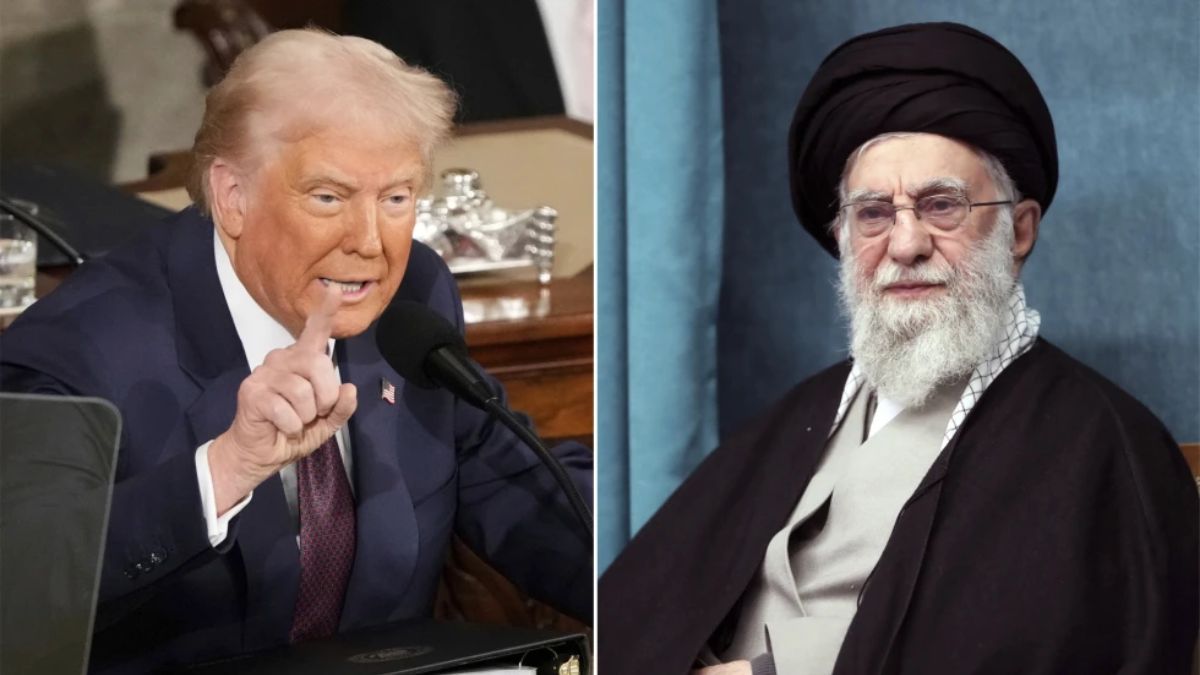Iran has stockpiled enough highly enriched uranium to build approximately 10 nuclear weapons, according to The Wall Street Journal, citing a confidential report by the International Atomic Energy Agency (IAEA).
The UN nuclear watchdog revealed that Iran has continued enriching uranium at a steady pace, roughly one bomb’s worth per month, over the past three months, despite ongoing talks between Washington and Tehran on a potential new nuclear agreement.
The IAEA report shows Iran’s stockpile of 60% enriched uranium has grown from 274.8 kilograms in early February to 408.6 kilograms, an increase of about 50%, reported The Wall Street Journal.
Based on IAEA standards for the minimum fissile material needed, this enrichment level gives Iran enough material for around 10 nuclear weapons, up from an estimated six in the previous report, added the news outlet.
According to the report, citing US officials, Iran could convert its stockpile of highly enriched uranium into weapons-grade material — enriched to 90% — in less than two weeks.
While Tehran maintains that its nuclear programme is entirely peaceful, Washington believes Iran has not yet decided to build a nuclear weapon but could assemble one within a few months if it chose to do so.
The IAEA report does not offer a monthly breakdown of enrichment activity but indicates there has been no slowdown in Iran’s production of 60%-enriched uranium since talks with the US resumed on April 12.
Impact Shorts
More ShortsIran remains the only country without nuclear weapons currently producing uranium enriched to this level. The IAEA has also said it is unable to verify that Iran’s nuclear activities are strictly peaceful.
“The significantly increased production and accumulation of highly enriched uranium by Iran, the only non-nuclear-weapon State to produce such nuclear material, is of serious concern,” WSJ quoted IAEA Director General Rafael Grossi as saying in the report.
Iran and the US have held five rounds of nuclear talks aimed at establishing a framework agreement on key issues. While President Trump has said the talks are going well, a major sticking point remains: whether Iran will be allowed to continue enriching uranium under the deal.
“President Trump has made it clear that Iran can never obtain a nuclear bomb,” WSJ quoted White House press secretary Karoline Leavitt as saying on Saturday, adding that Trump’s special envoy Steve Witkoff had sent a detailed proposal to Iran.
“It’s in their best interest to accept it,” she added.
However, according to a Reuters report on Monday, citing an Iranian diplomat, Iran is poised to reject the US proposal to end a decades-old nuclear dispute, dismissing it as a “non-starter” that fails to address Tehran’s interests or soften Washington’s stance on uranium enrichment.
“Iran is drafting a negative response to the U.S. proposal, which could be interpreted as a rejection of the U.S. offer,” Reuters quoted the senior diplomat, who is close to Iran’s negotiating team, as saying.
The US proposal for a new nuclear deal was presented to Iran on Saturday by Omani Foreign Minister Sayyid Badr Albusaidi, who was on a short visit to Tehran and has been mediating talks between Tehran and Washington.
After five rounds of discussions between Iranian Foreign Minister Abbas Araqchi and President Donald Trump’s Middle East envoy Steve Witkoff, several obstacles remain.
The US withdrew from the 2015 Iran nuclear deal in 2018 under President Trump, ending temporary restrictions on Iran in exchange for sanctions relief.
The IAEA report, shared with member states on Saturday, accuses Iran of failing to cooperate with a probe into undeclared nuclear material, first launched in 2019.
Despite Iran’s claims of full disclosure, the agency said Tehran likely ran a secret nuclear programme until the 2000s and retained unknown nuclear material or contaminated equipment at a Tehran site until 2018.
The report, requested by European powers, could lead to renewed sanctions under the 2015 deal’s snapback mechanism. European diplomats are threatening to declare Iran noncompliant with the Non-Proliferation Treaty and plan to present a resolution at the IAEA board meeting starting June 9. A final decision on reimposing sanctions is expected by summer, before the October deadline, reported The Wall Street Journal.
In a joint statement by Iran’s foreign ministry and atomic agency, Tehran called the IAEA report unbalanced and labeled some of the charges baseless.
They warned that Iran would take “proportionate measures” if targeted at the agency’s board—an approach that in the past has included ramping up enrichment or limiting inspections.
Iran has also threatened to withdraw from the Non-Proliferation Treaty (NPT) and revise its nuclear policy if sanctions are reimposed, though its leadership maintains it does not seek nuclear weapons.
Meanwhile, Israeli Prime Minister Benjamin Netanyahu said the findings show the international community “must act now” to halt Iran’s nuclear ambitions.
“The agency presents a stark picture that serves as a clear warnings sign: despite countless warnings…Iran is totally determined to complete its nuclear weapons programme,” WSJ quoted Netanyahu as saying in a statement.
Israel, widely believed to possess nuclear weapons though never officially confirming it, has threatened military action against Iran’s nuclear facilities if Tehran moves to build a bomb. However, President Trump confirmed this week that he advised Israel against launching an attack at this time.
While Iran’s structured nuclear weapons program is believed to have ended in 2003, Western officials say it has continued conducting weapons-related experiments. In 2024, US intelligence reported that Iran was engaged in activities that could aid in developing a nuclear weapon.
The IAEA report noted that Iran’s failure to provide “technically credible answers” raises concerns that it may still possess undeclared nuclear material potentially usable for non-civilian purposes.
With inputs from agencies
)